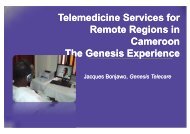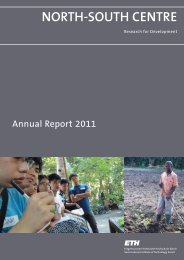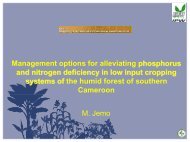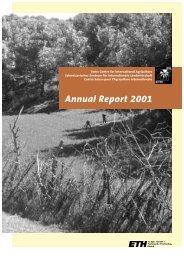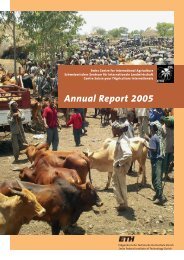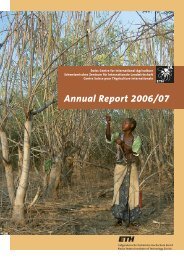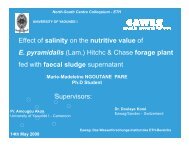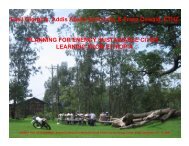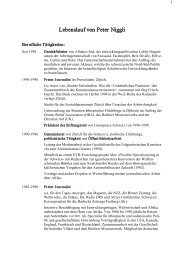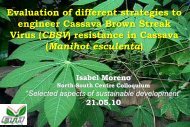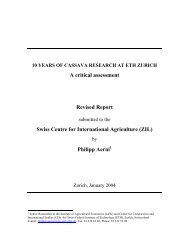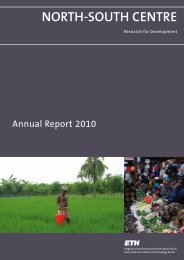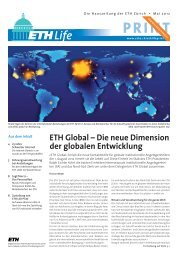NORTH-SOUTH CENTRE - ETH - North-South Centre North-South ...
NORTH-SOUTH CENTRE - ETH - North-South Centre North-South ...
NORTH-SOUTH CENTRE - ETH - North-South Centre North-South ...
You also want an ePaper? Increase the reach of your titles
YUMPU automatically turns print PDFs into web optimized ePapers that Google loves.
makers. R4D allows for explaining that we are doing research<br />
for external users and not only for our own researchers’<br />
environment.<br />
What would you like the readers of this interview to keep<br />
in mind?<br />
Bassirou Bonfoh: If we want to emphasise the impact of<br />
R4D, we need other funding mechanisms to support this<br />
specific research – different from most of the funding mechanisms<br />
that exist today.<br />
Barbara Becker: There are two key messages. The first builds<br />
on what Isabel said earlier, that those colleagues at the <strong>ETH</strong><br />
Zurich or among our readers who have not had anything<br />
to do with R4D or problems of developing countries might<br />
get the idea that their research, on ICT for example, is<br />
also relevant when put into the development context. The<br />
second key message is that we have to develop new approaches<br />
to the award system for judging the quality of<br />
science – approaches that are more appropriate for assessing<br />
and capturing the quality of R4D.<br />
Urs Wiesmann: I fully subscribe to that. I would be happy<br />
if we were able to show with this interview that R4D is<br />
not applied research in a purely demand- or consultancydriven<br />
way, but that it is facing very large scientific challenges.<br />
These challenges call for innovation in terms of methodology,<br />
in terms of approaches, and in terms of generating<br />
outputs and outcomes. The second message is that in<br />
science we should stop thinking that globalised knowledge<br />
is automatically better than contextualised knowledge. The<br />
two have to go together and supplement each other. Only<br />
in this way can science make a meaningful contribution to<br />
society at large, to the economy, and to the environment.<br />
Isabel Guenther: In addition to everything said before,<br />
I would like to highlight that working in research in a<br />
development context is very rewarding. I do not think it is a<br />
trade-off, nor a low-tech area nor a consultancy service for<br />
development agencies and governments – it is a field with<br />
very interesting and relevant scientific questions.<br />
Fresh camel milk samples are waiting for pH measurements,<br />
Isiolo, Kenya<br />
Interview with the village head, Guruwahi, India<br />
27<br />
FOCUS<br />
Research for development



